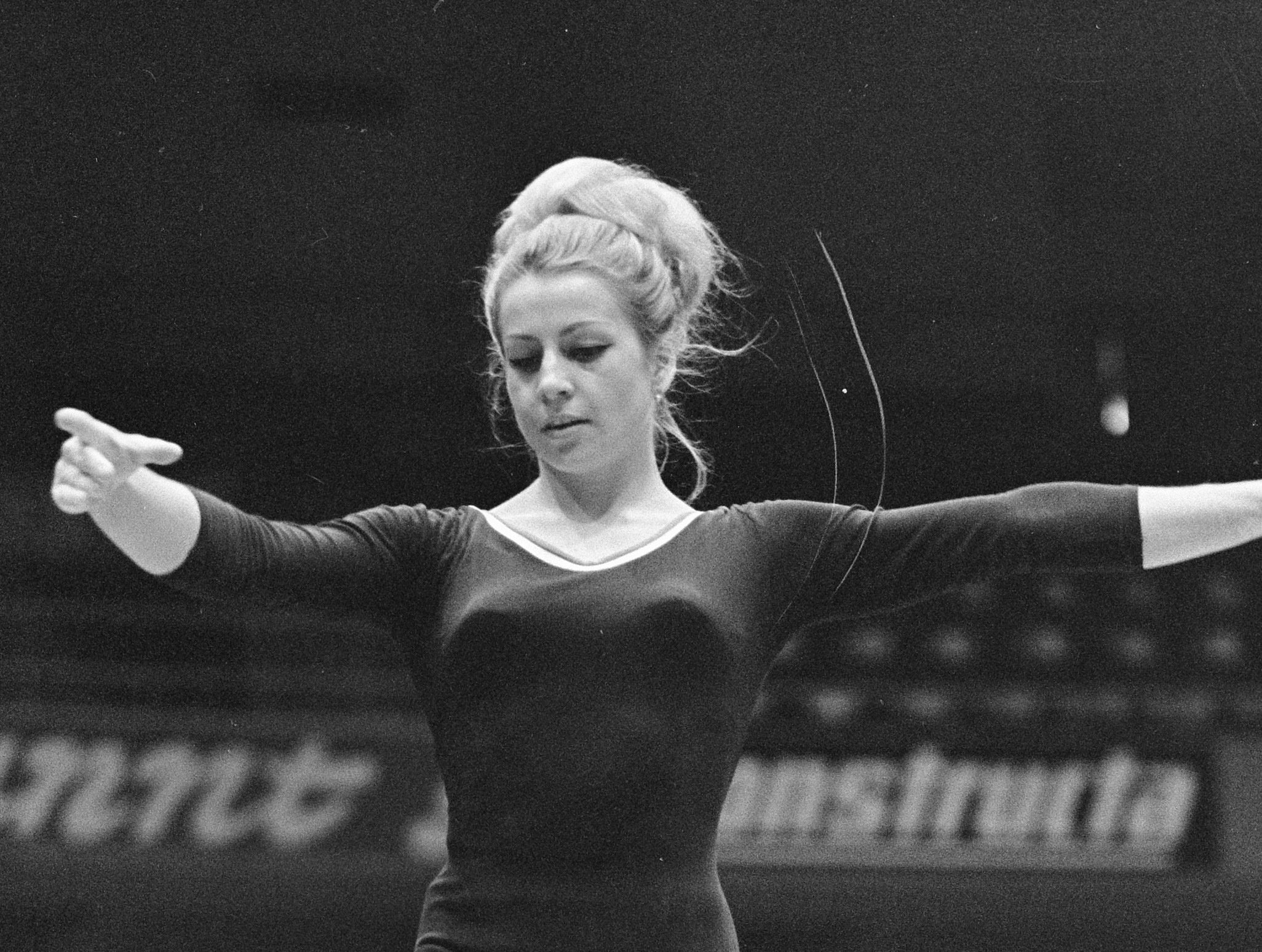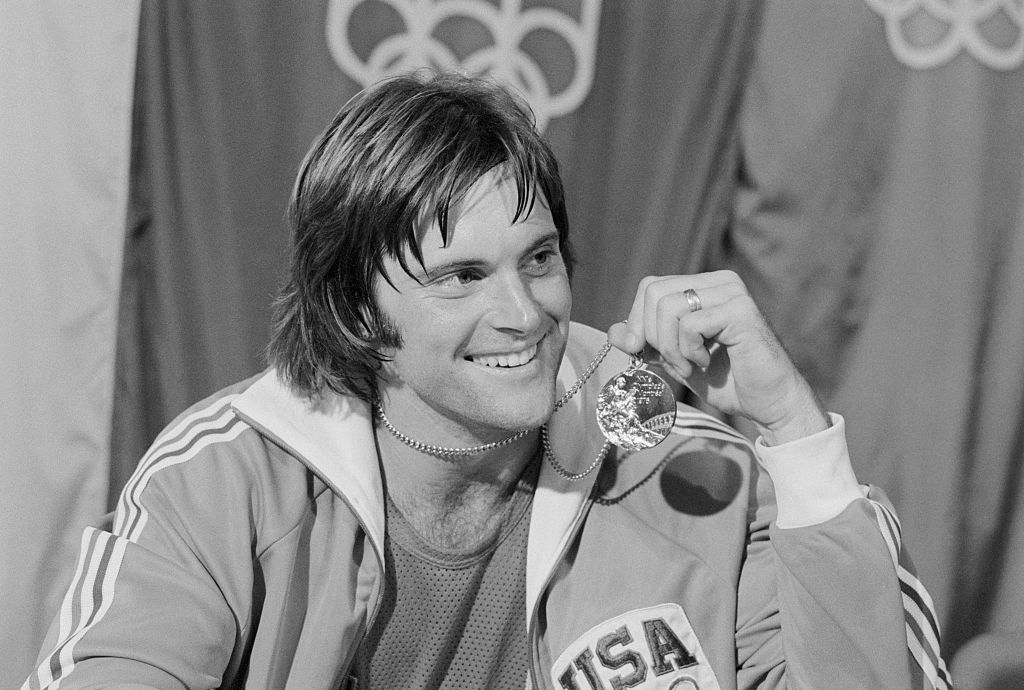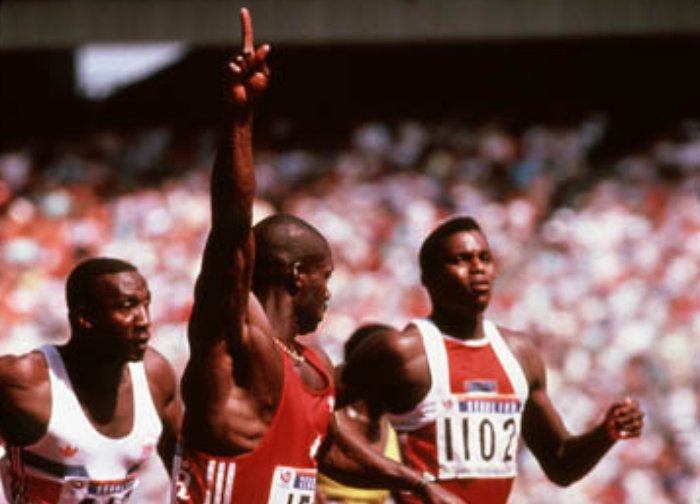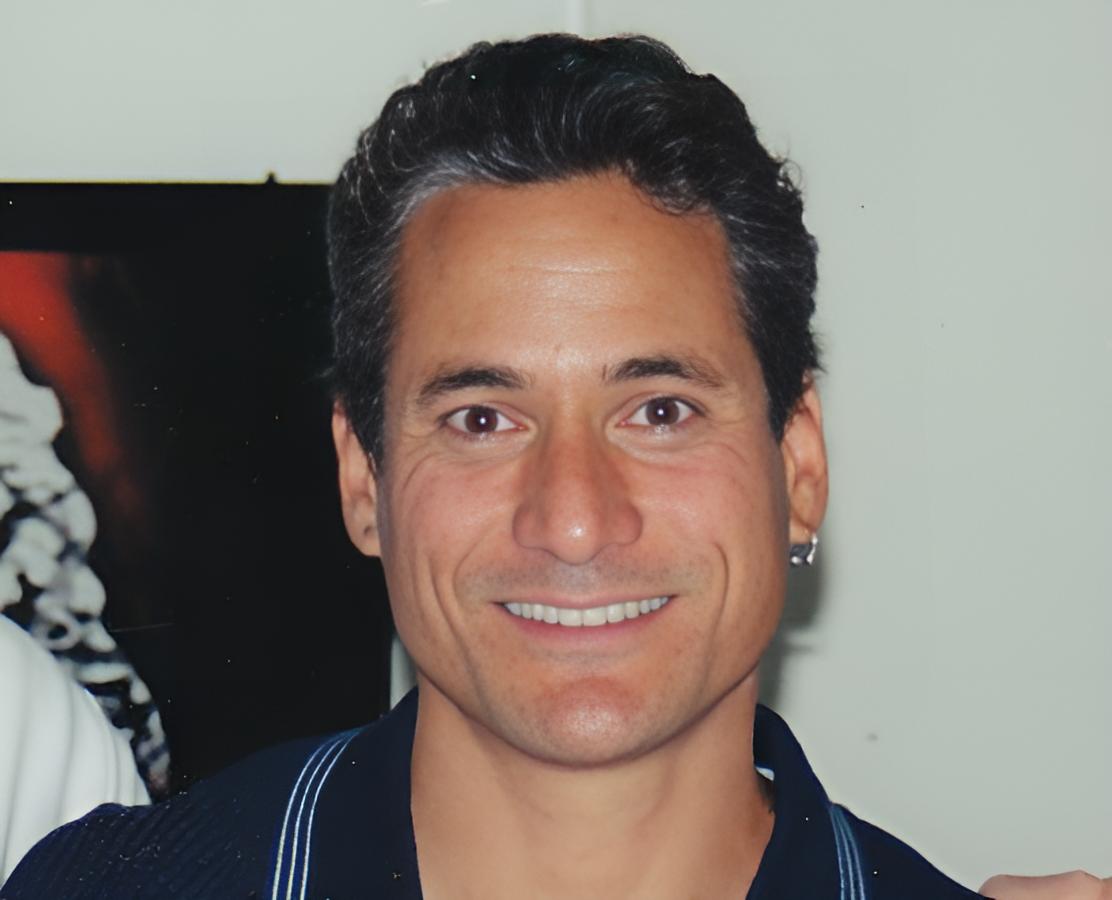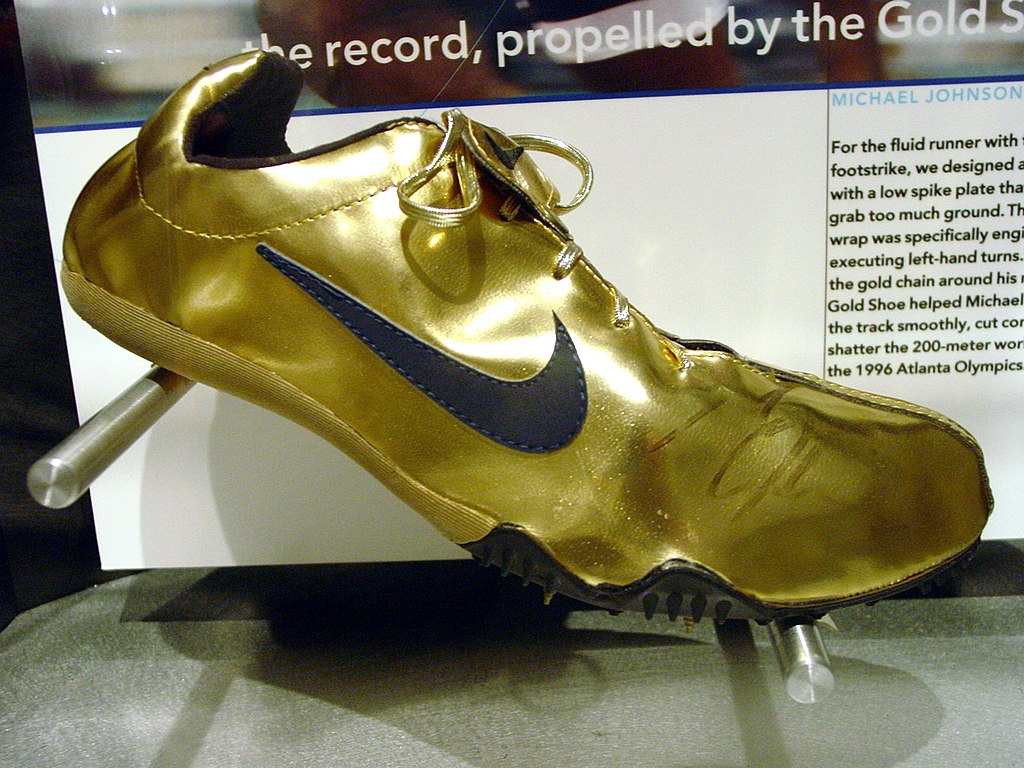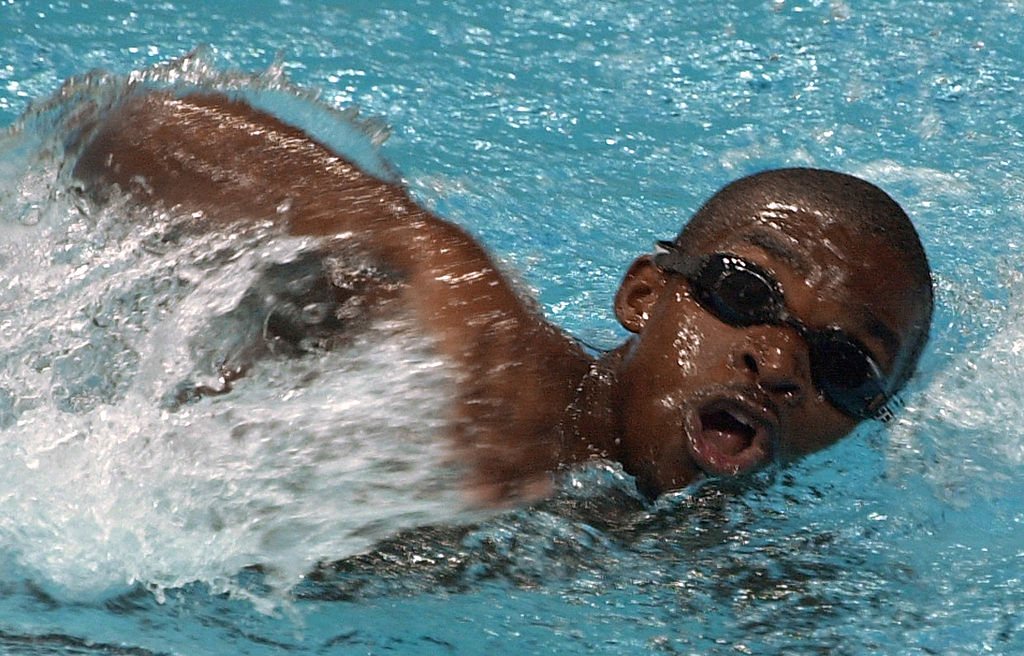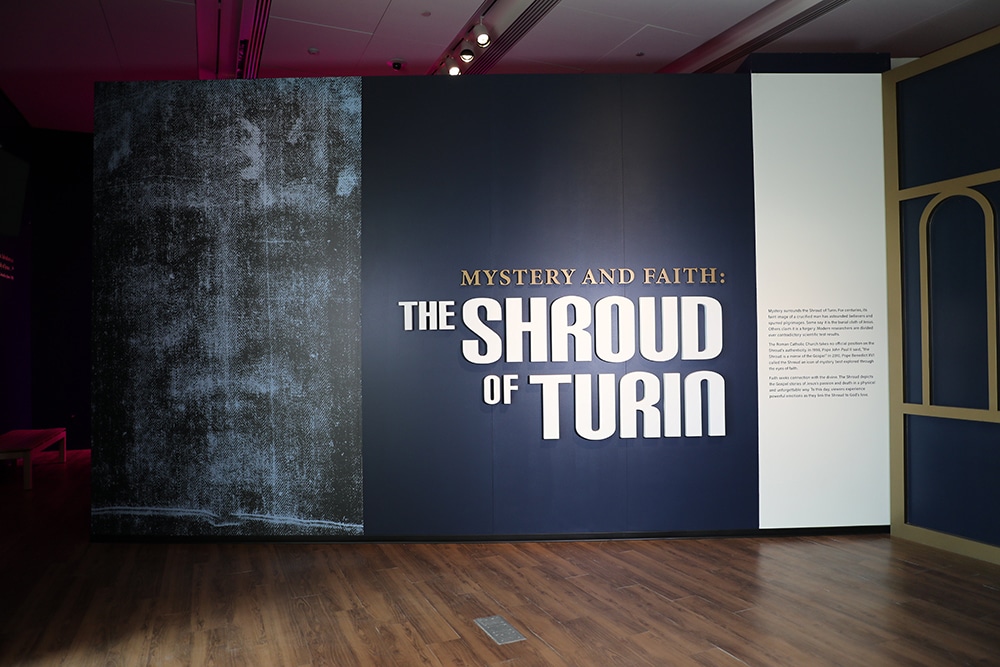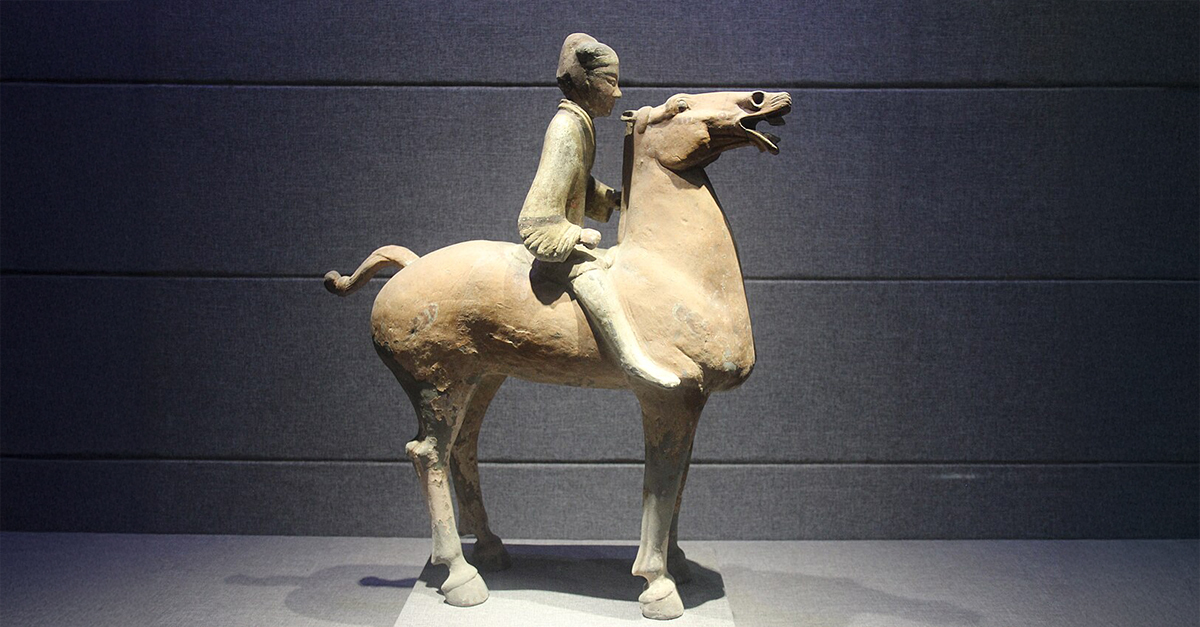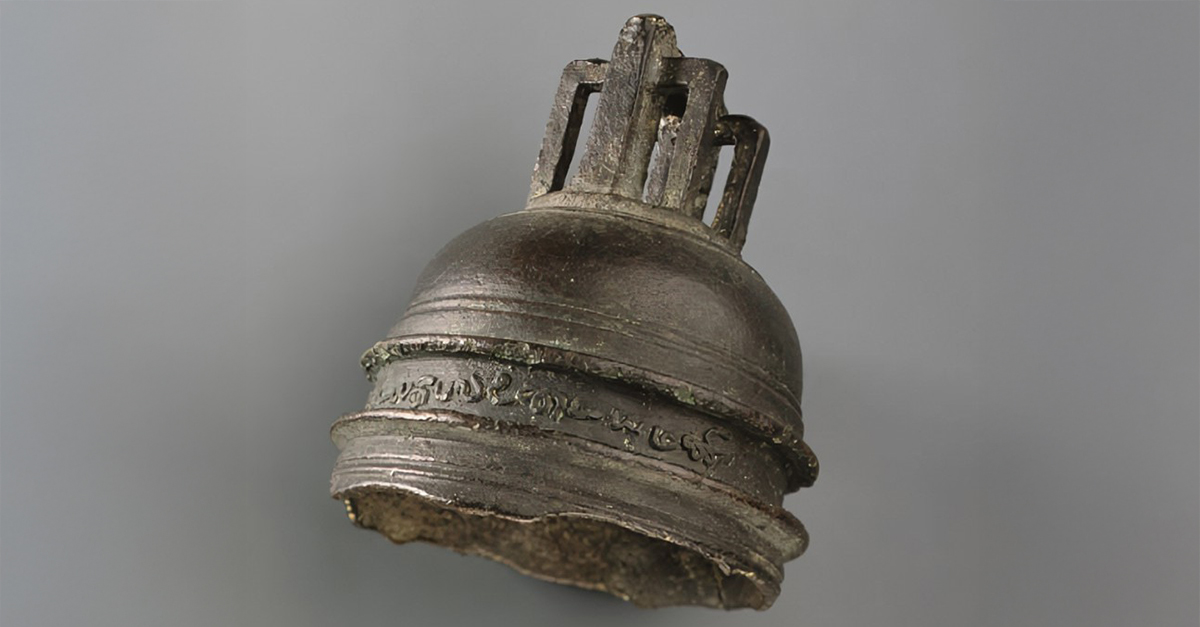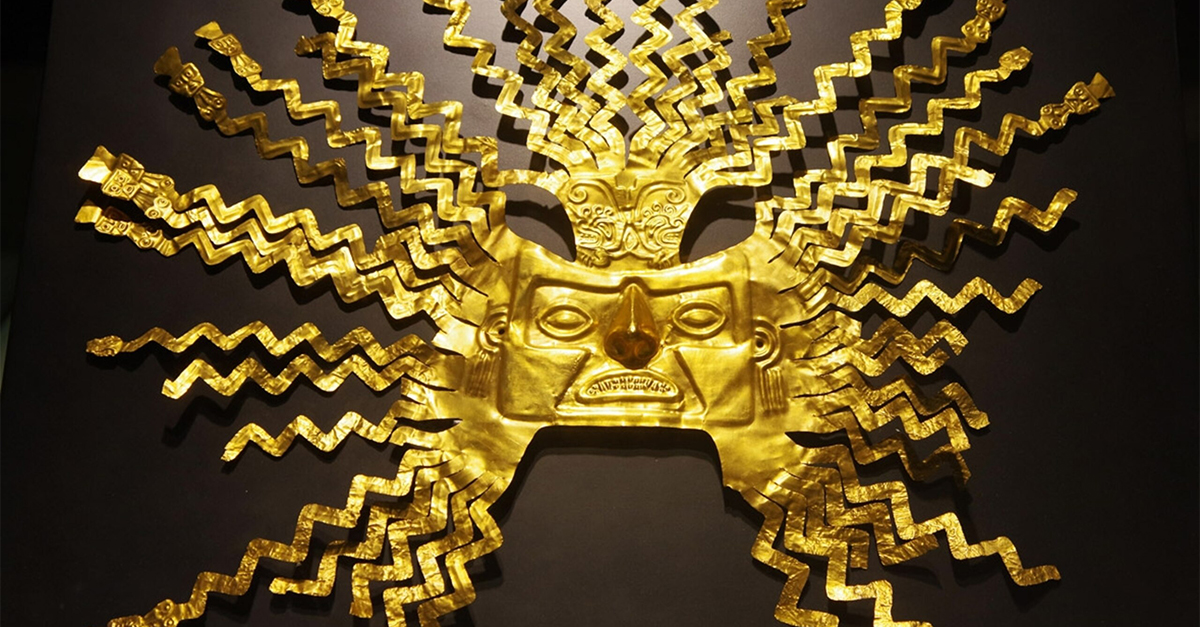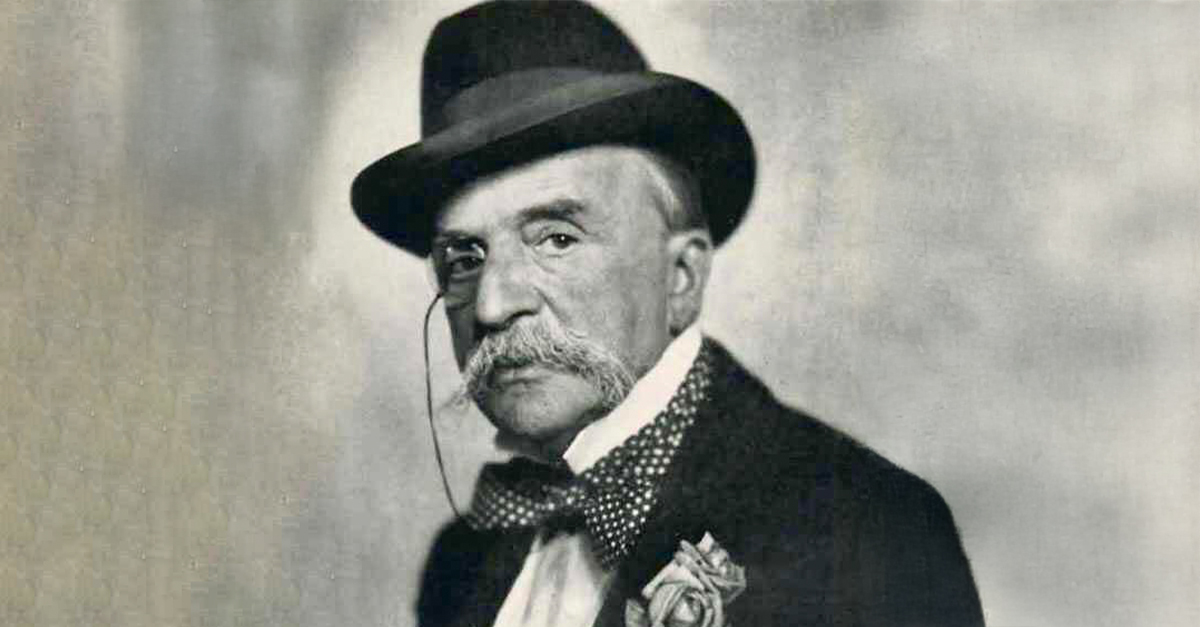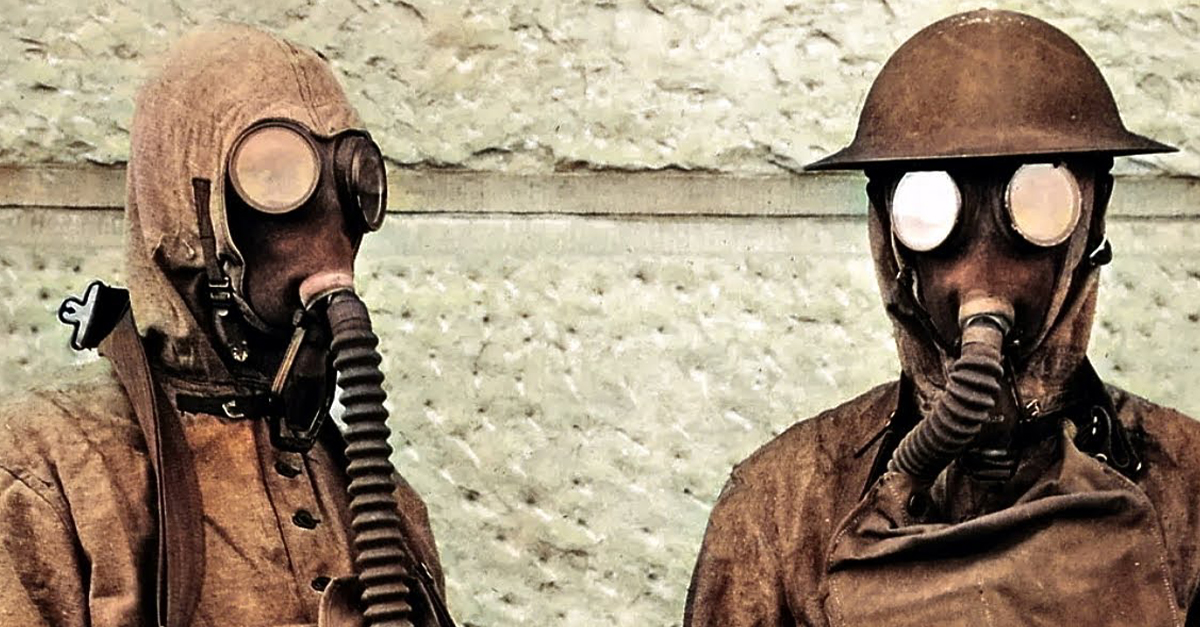For the love of sports
As humans, we are drawn to competition. That's what makes the Olympic Games so exciting to watch—3,000 years after its conception, we still tune in to see our countries represented by athletes who give it their all for the gold. Here are some of the greatest Olympic moments that changed history.
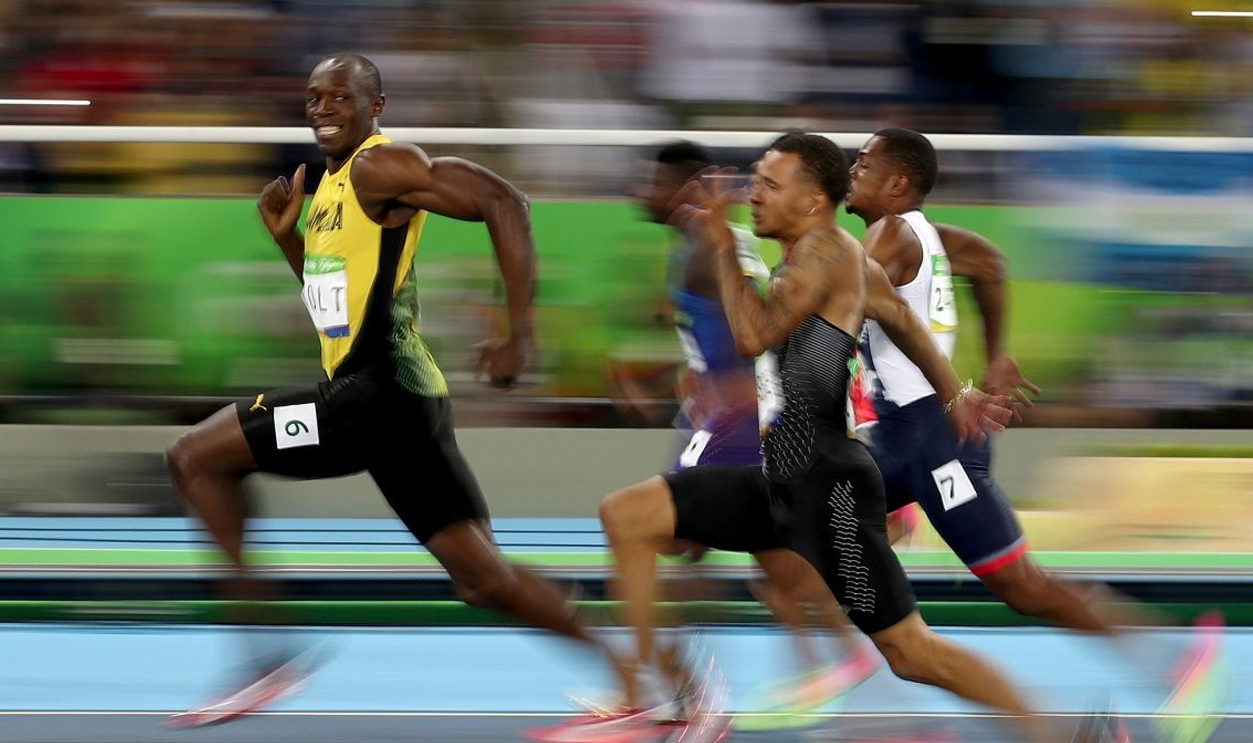
The debut of women's sports, 1900
Women made their Olympic debut in 1900 at the Paris Games, competing in five sports: tennis, sailing, croquet, horseback riding, and golf. Only 22 out of nearly 1,000 athletes were women. British tennis player Charlotte Cooper became the first female Olympic champion, paving the way for more female participation in future Games.
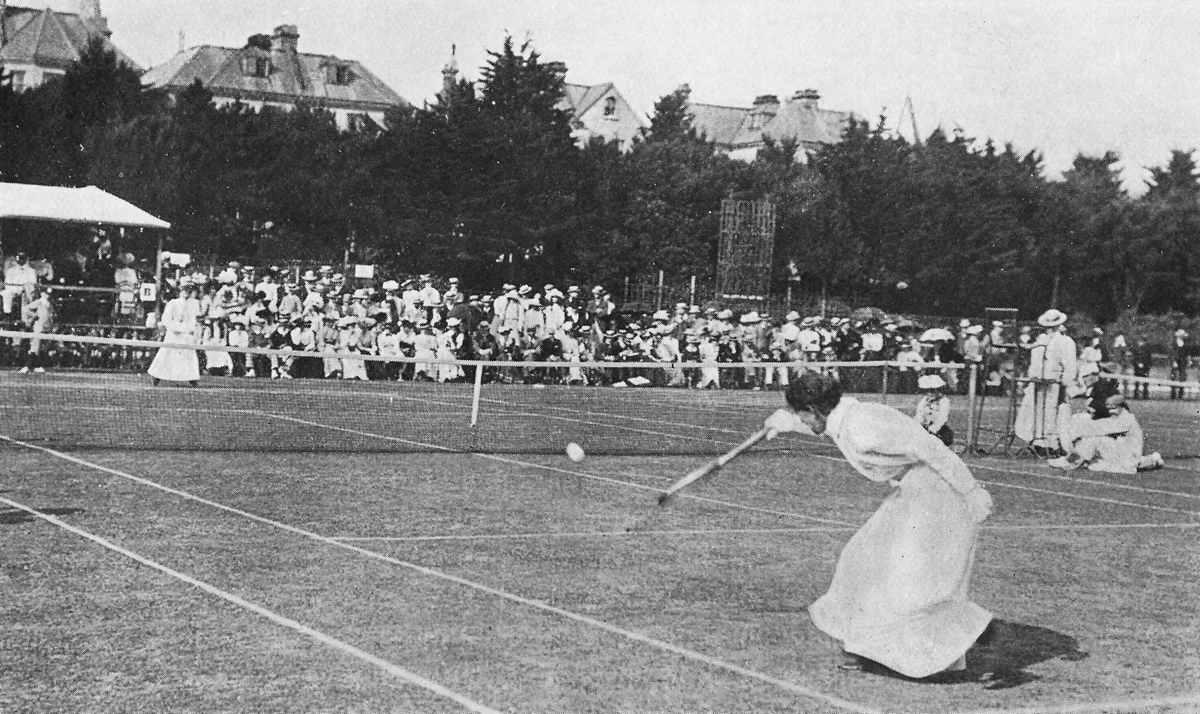 Unknown Author, Wikimedia Commons
Unknown Author, Wikimedia Commons
Jim Thorpe shines for his people, 1912
Jim Thorpe, a Native American athlete, won gold in pentathlon and decathlon at the 1912 Stockholm Olympics. Despite losing his medals for breaking amateurism rules (he had played minor league baseball for a small payment), his legacy endured. In 2022, he was reinstated as the sole champion in both events.
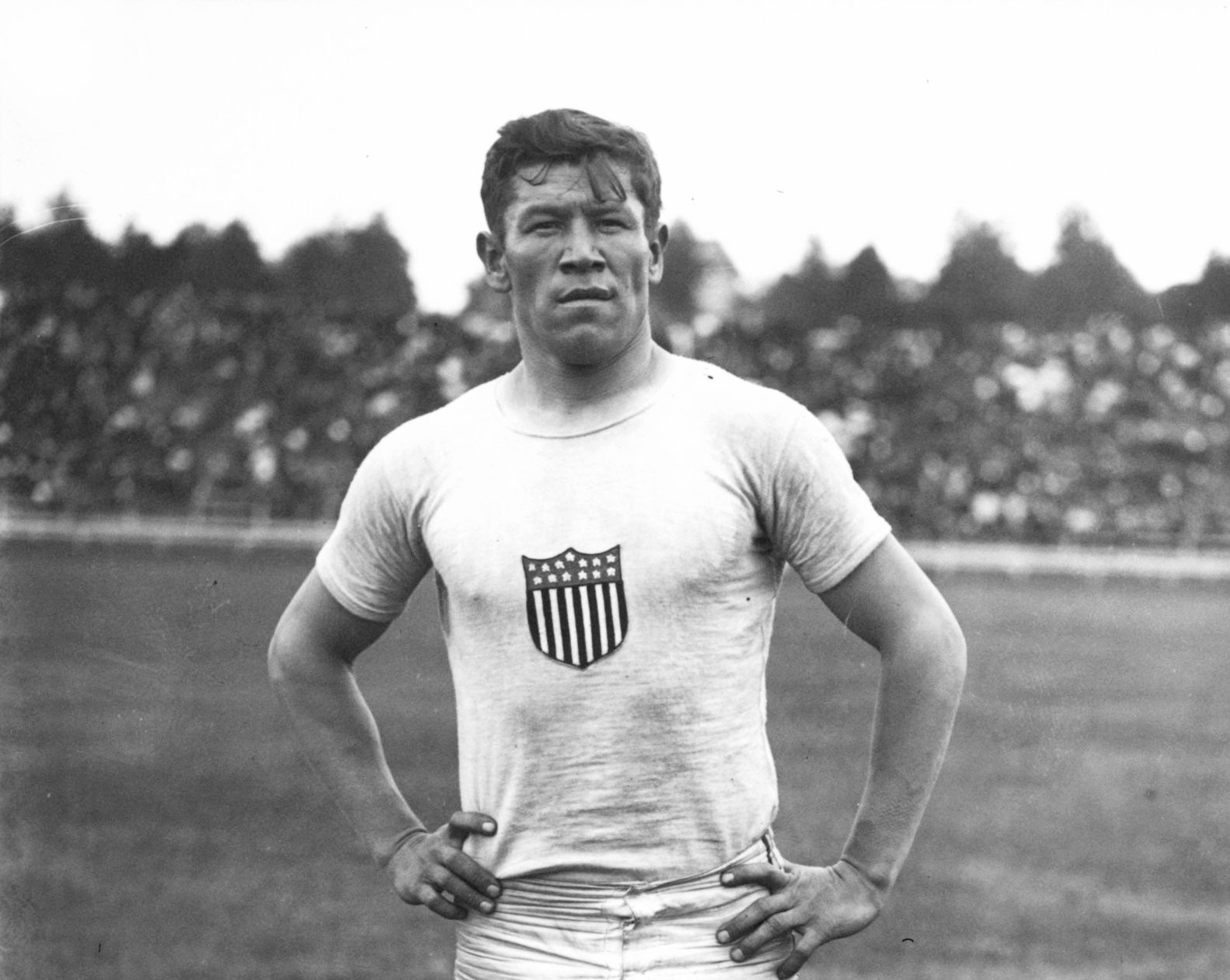 Category:Agence Rol, Wikimedia Commons
Category:Agence Rol, Wikimedia Commons
Luz Long extends a helping hand, 1936
German long jumper Luz Long showed sportsmanship at the 1936 Berlin Olympics by assisting African-American athlete Jesse Owens in the long jump event. Long advised Owens to change his take-off point to prevent fouling his jumps, and this helped Owens win gold. Long had no hard feelings and still took home the silver.
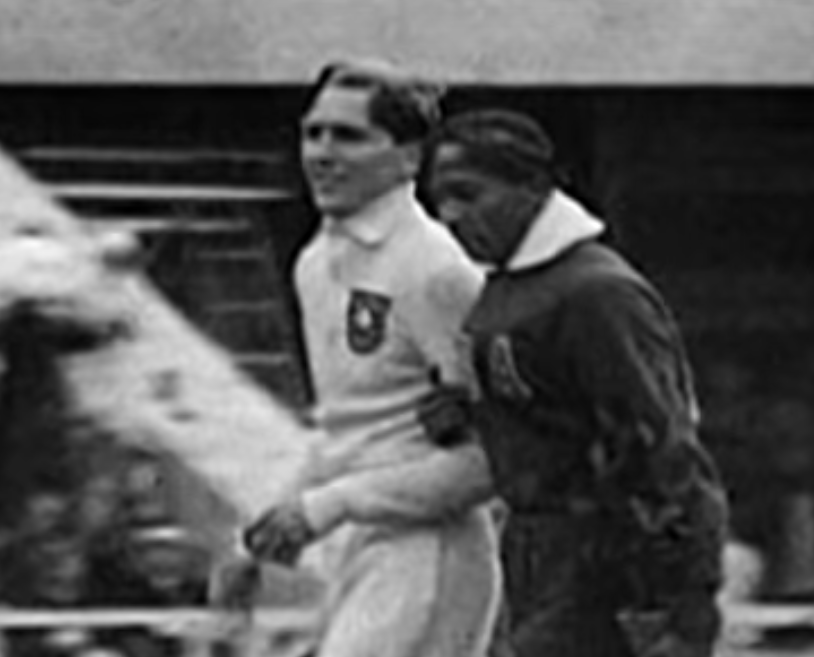 Unknown Author, Wikimedia Commons
Unknown Author, Wikimedia Commons
Jesse Owens proves everyone wrong, 1936
In the 1936 Berlin Olympics, Jesse Owens, an African-American athlete, won gold medals in the 100 m, 200 m, long jump, and 4x100 m relay, defying racial biases and Hitler's propaganda. Despite myths, Hitler did not ignore Owens but stopped applauding all athletes. Owens faced racial prejudice upon returning to the US.
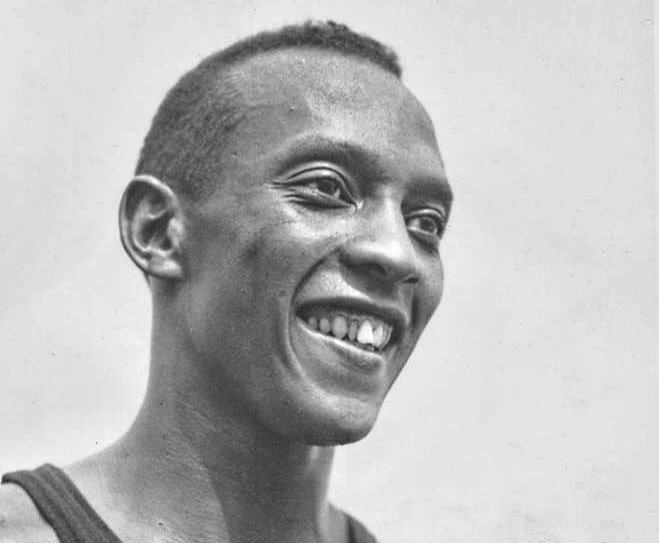 Acme News Photos, Wikimedia Commons
Acme News Photos, Wikimedia Commons
Introducing the Paralympics, 1960
The 1960 Paralympic Games in Rome were the first ever, marking a significant advancement in sports for athletes with physical disabilities. Following the Summer Olympics, 400 athletes from 23 nations competed in eight sports, showcasing disabled athletes' talents worldwide.
 Australian Paralympic Committee, CC BY-SA 3.0, Wikimedia Commons
Australian Paralympic Committee, CC BY-SA 3.0, Wikimedia Commons
Muhammad Ali gets the gold, 1960
Muhammad Ali, formerly known as Cassius Clay, won a gold medal in light heavyweight boxing at the 1960 Rome Olympics at just 18 years old. He defeated Polish boxer Zbigniew Pietrzykowski with fast combinations, and the win marked the beginning of his legendary boxing career.
 Unknown Author, Wikimedia Commons
Unknown Author, Wikimedia Commons
Abebe Bikala runs barefoot, 1960
Ethiopian athlete Abebe Bikila made history at the 1960 Rome Olympics by winning the marathon barefoot and becoming the first African to win a gold medal. Competing in the afternoon to avoid heat, he finished in a record-breaking 2 hours, 15 minutes, and 16.2 seconds. His victory inspired many East African athletes after her.
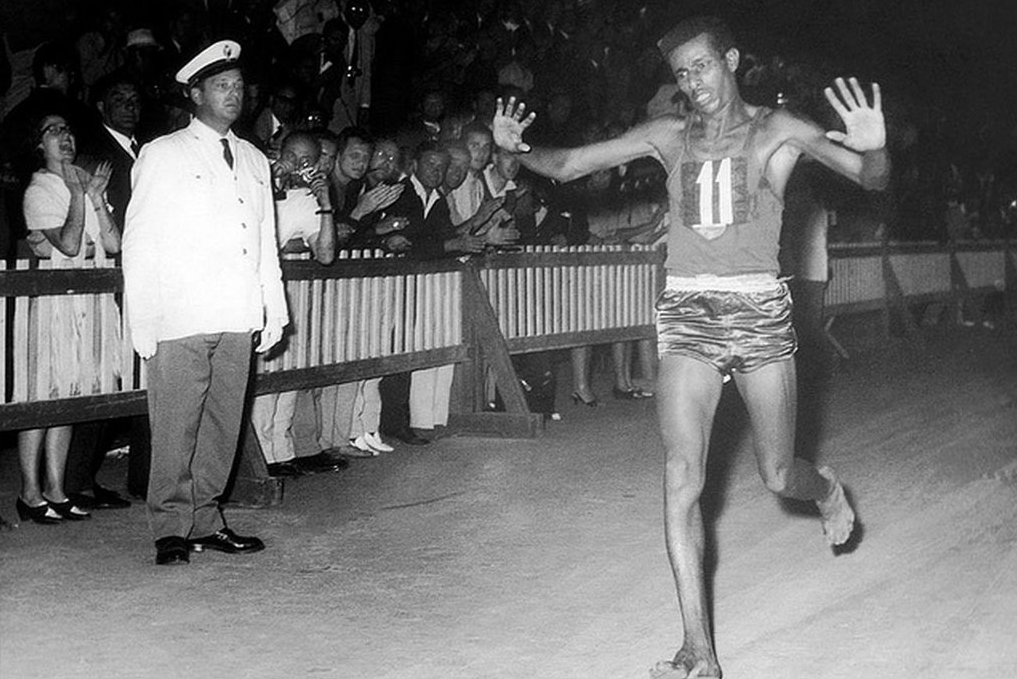 Unknown Author, Wikimedia Commons
Unknown Author, Wikimedia Commons
The first Olympic games in Asia, 1964
The 1964 Tokyo Olympics were historic as the first Olympic Games in Asia, showcasing Japan's post-war progress. Over 5,000 athletes from 93 nations competed in 163 events, with new sports like judo and volleyball introduced. The Games also featured the use of computers for timing and scoring, and it was a pioneer in live satellite streaming with a global viewership of 600 to 800 million.
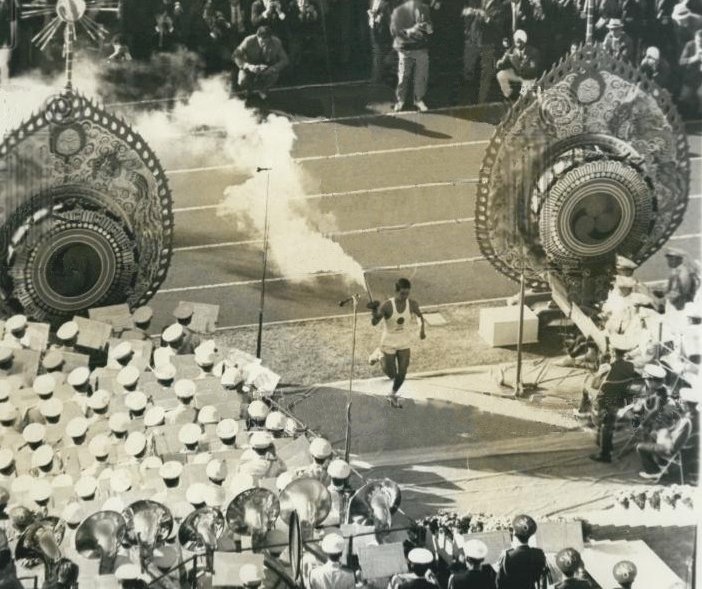 Keystone Press, Wikimedia Commons
Keystone Press, Wikimedia Commons
Raised fists send a powerful message, 1968
Tommie Smith and John Carlos protested racial prejudice at the 1968 Olympics by raising fists during the national anthem. They faced backlash but are now hailed for their courage against injustice. Today, their actions still resonate and influence much of the symbolism in the fight for racial equality and social justice.
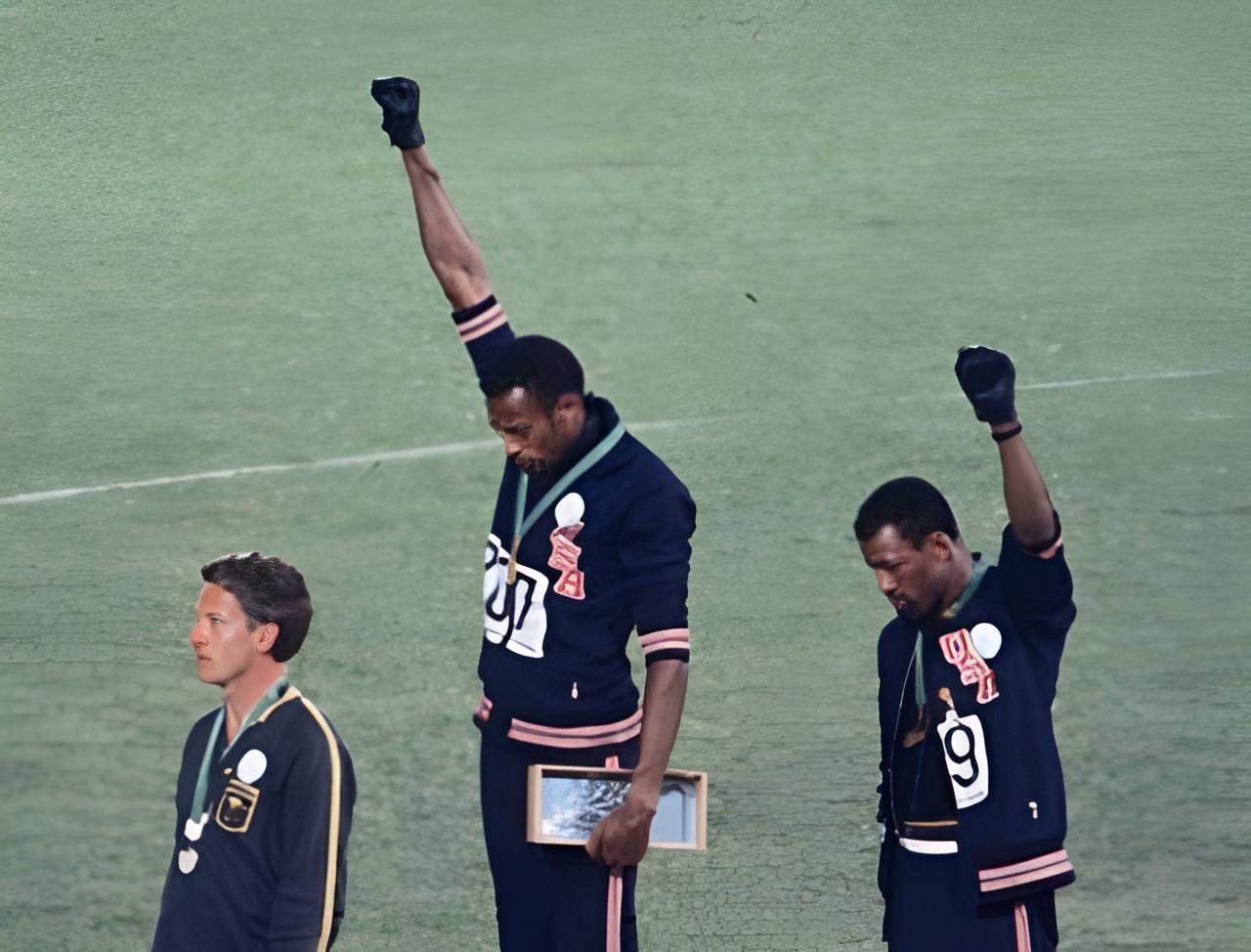 Angelo Cozzi, Wikimedia Commons
Angelo Cozzi, Wikimedia Commons
Vera Caslavska's big statement, 1968
Vera Caslavska won gold medals at the 1968 Olympics in Mexico City as a Czech gymnast. During the medal ceremony, she bowed her head and looked away while the Soviet anthem played, silently protesting the Soviet invasion of Czechoslovakia. The demonstration was in honor of her country's fight for liberation.
A most violent year for the Olympics, 1972
The 1972 Munich Olympics were tragically marked by a terrorist. The Palestinian group Black September seized Israeli athletes as hostages, and 11 team members lost their lives in a failed rescue attempt. The incident led to increased security measures at future Olympic Games.
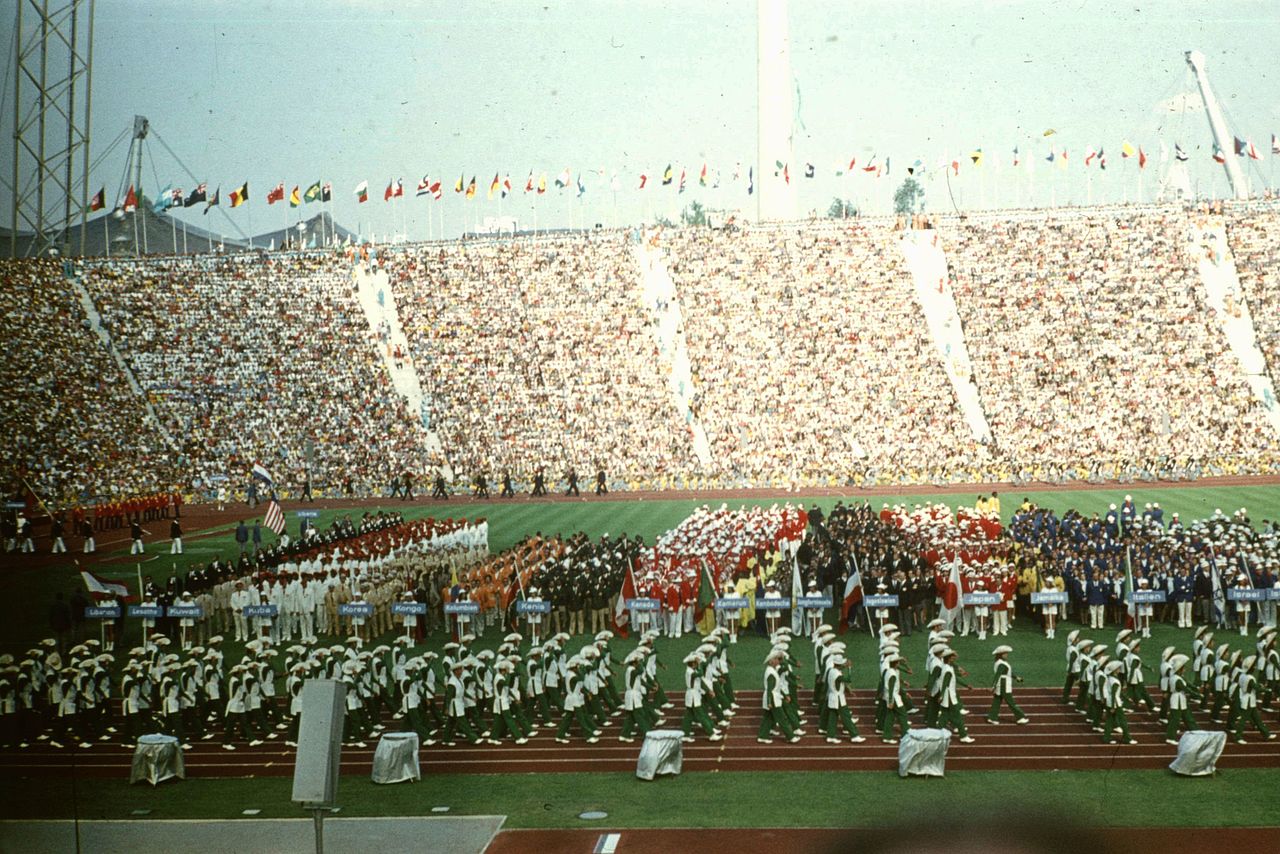 Fortepan, CC BY-SA 3.0, Wikimedia Commons
Fortepan, CC BY-SA 3.0, Wikimedia Commons
The first perfect 10 in gymnastics, 1976
In 1976 at the Montreal Olympics, 14-year-old Romanian gymnast Nadia Comaneci achieved the first perfect 10 in gymnastics history on the uneven bars. Her flawless performance revolutionized the sport and set a standard for greatness still aspired to today.
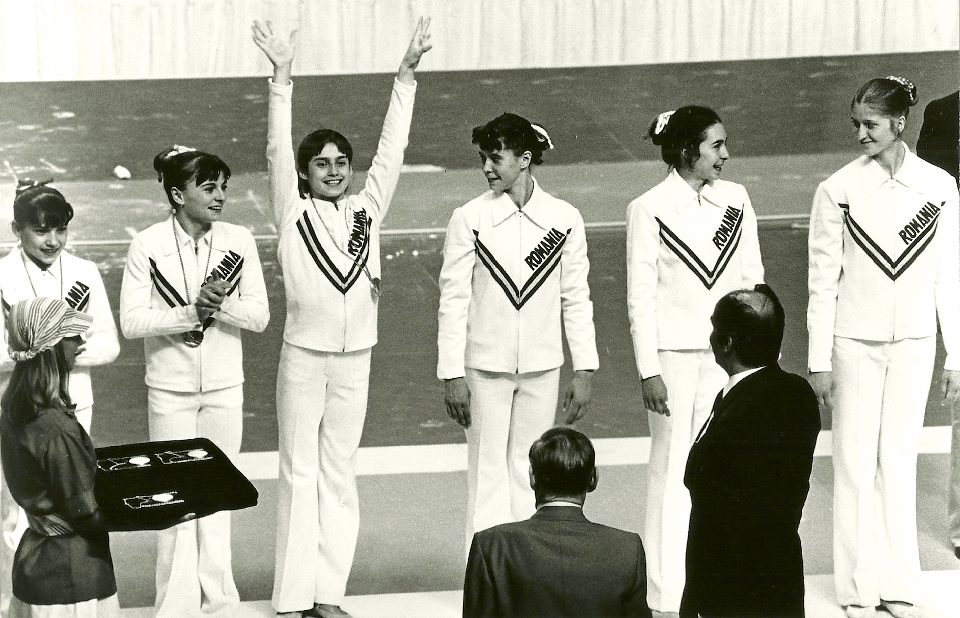 Mariana Constantin K, CC BY-SA 4.0, Wikimedia Commons
Mariana Constantin K, CC BY-SA 4.0, Wikimedia Commons
Bruce Jenner becomes a star, 1976
Bruce Jenner became famous during the 1976 Olympics in Montreal after winning the gold medal and setting a world record in the decathlon. His success not only showcased his talents but also his charisma, making him a widely recognized figure at the Olympics. After the games, he transitioned successfully into television and business, leter becoming Caitlyn Jenner.
Boycotting the Moscow Olympic Games, 1980
The 1980 Moscow Olympics faced controversy as the United States and 64 nations boycotted to protest the Soviet Union's invasion of Afghanistan. This unprecedented political move aimed to put the spotlight on the Soviet Union, raising questions about the impact of its foreign affairs on global sports.
 Валентин Фёдорович Ботенков, CC-BY-SA 3.0, Wikimedia Commons
Валентин Фёдорович Ботенков, CC-BY-SA 3.0, Wikimedia Commons
The rise of U.S. hockey, 1980
At the 1980 Winter Olympics in Lake Placid, NY, the United States ice hockey team defeated the favored Soviet Union team in a historic event known as the "Miracle on Ice." The win symbolized American resilience during the Cold War, as the team went on to win the gold medal by beating Finland in the final game.
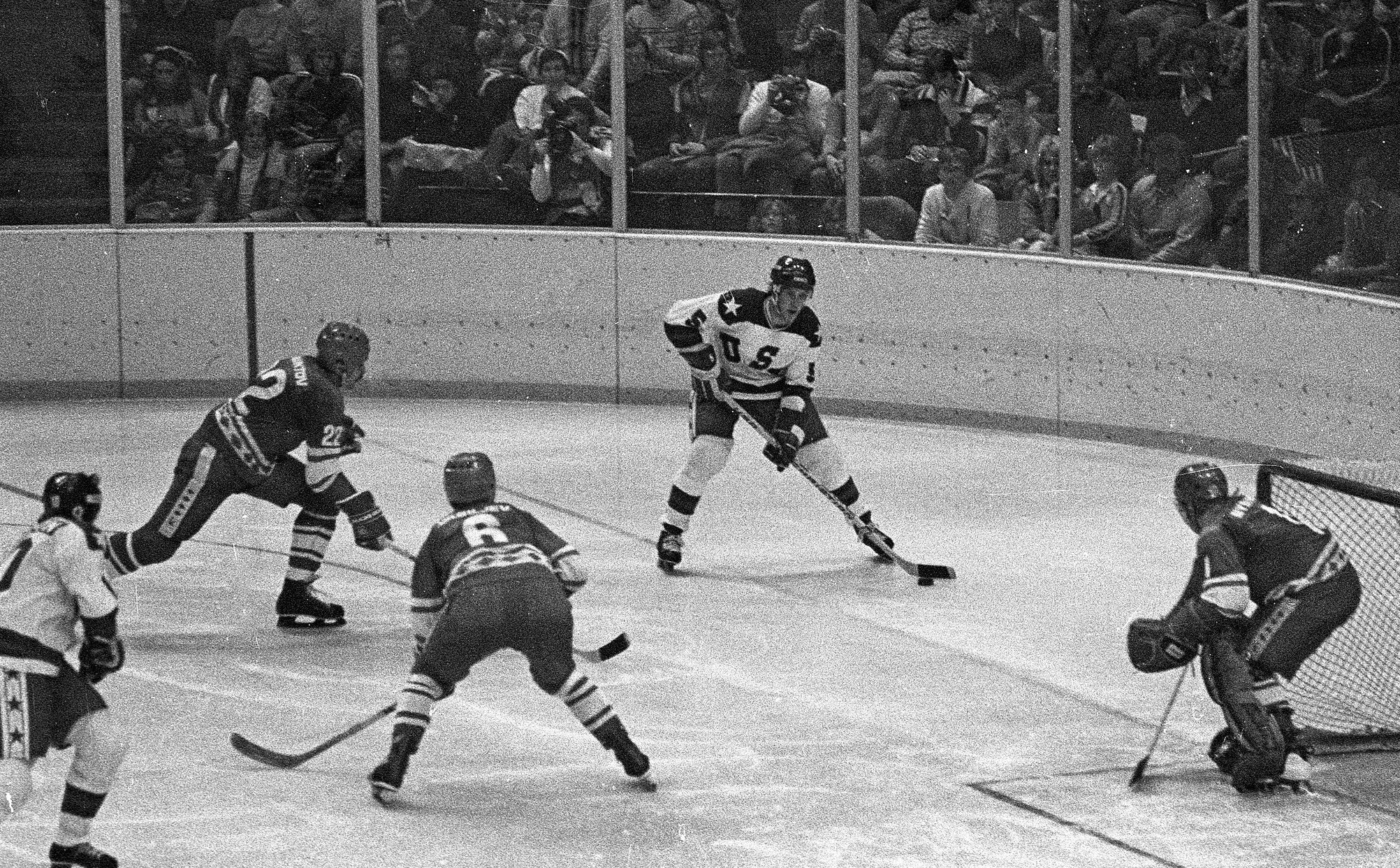 Henry Zbyszynski, CC BY 2.0, Wikimedia Commons
Henry Zbyszynski, CC BY 2.0, Wikimedia Commons
Boycotting the LA Olympic Games, 1984
1984 Summer Olympics in Los Angeles were boycotted by the Soviet Union and 13 other nations in response to the US boycott of the 1980 Moscow Olympics. LA Games were successful despite boycott.
 Unknown Author, Wikimedia Commons
Unknown Author, Wikimedia Commons
Carl Lewis vs. Jesse Owens, 1984
In the 1984 Olympics, Carl Lewis matched Jesse Owens' historic performance by winning four gold medals in track and field events. His victories in the 100 m, 200 m, long jump, and 4x100 m relay established him as a dominant sprinter and jumper just like Owens.
 Joe Kennedy, CC BY 4.0, Wikimedia Commons
Joe Kennedy, CC BY 4.0, Wikimedia Commons
Ben Johnson gets caught doping, 1988
Ben Johnson shocked the world with a new record in the 1988 Seoul Olympics 100 meters race, but was disqualified and lost his gold medal due to failing a drug test for anabolic steroids, sparking conversations on integrity and anti-doping measures in sports.
Greg Louganis' redemption, 1988
At the 1988 Seoul Olympics, Greg Louganis's remarkable comeback after hitting his head during the diving preliminaries. Despite the injury, he still won gold medals in springboard and platform diving. His resilience solidified his status as an Olympic diving great.
Derek Redmond crosses with his father, 1992
In the 1992 Barcelona Olympics 400 m semifinal, Derek Redmond suffered a torn hamstring. With his father's assistance, he bravely completed the task, resulting in a touching and unforgettable Olympic moment.
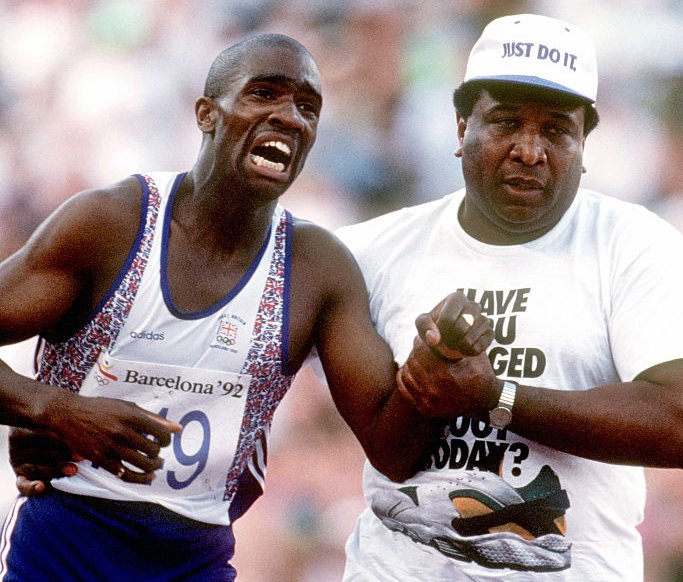 PA Images Archive, Getty Images
PA Images Archive, Getty Images
The Dream Team, 1992
The 1992 US men's basketball team, known as the Dream Team, featured NBA stars like Michael Jordan and Magic Johnson at the Barcelona Olympics. Coached by Chuck Daly, they dominated their games, showcasing talent that captivated fans globally and solidifying basketball's international appeal.
 Ken Hackman, Wikimedia Commons
Ken Hackman, Wikimedia Commons
Tonya Harding's scandal, 1994
At the 1994 Winter Olympics in Lillehammer, a scandal erupted involving figure skater Tonya Harding, whose associates planned an attack on her competitor Nancy Kerrigan. They succeeded, injuring her knee. Despite still being allowed to compete and winning silver, the incident still tarnished Harding's reputation and career.
 Andrew Parodi, CC BY 3.0, Wikimedia Commons
Andrew Parodi, CC BY 3.0, Wikimedia Commons
Michael Johnson's gold shoes, 1996
During the 1996 Atlanta Olympics, American sprinter Michael Johnson wore gold racing shoes, and they caught everyone's attention. He won gold medals in the 200 and 400 m events, solidifying his reputation as a top sprinter in Olympic history.
The ultimate wrestling defeat, 2000
The wrestling match at the 2000 Sydney Olympics between Rulon Gardner and Aleksandr Karelin was historic. Karelin, a three-time Olympic gold medalist, was undefeated for 13 years. However, Gardner, a lesser-known wrestler, achieved a remarkable victory over Karelin to everyone's shock.
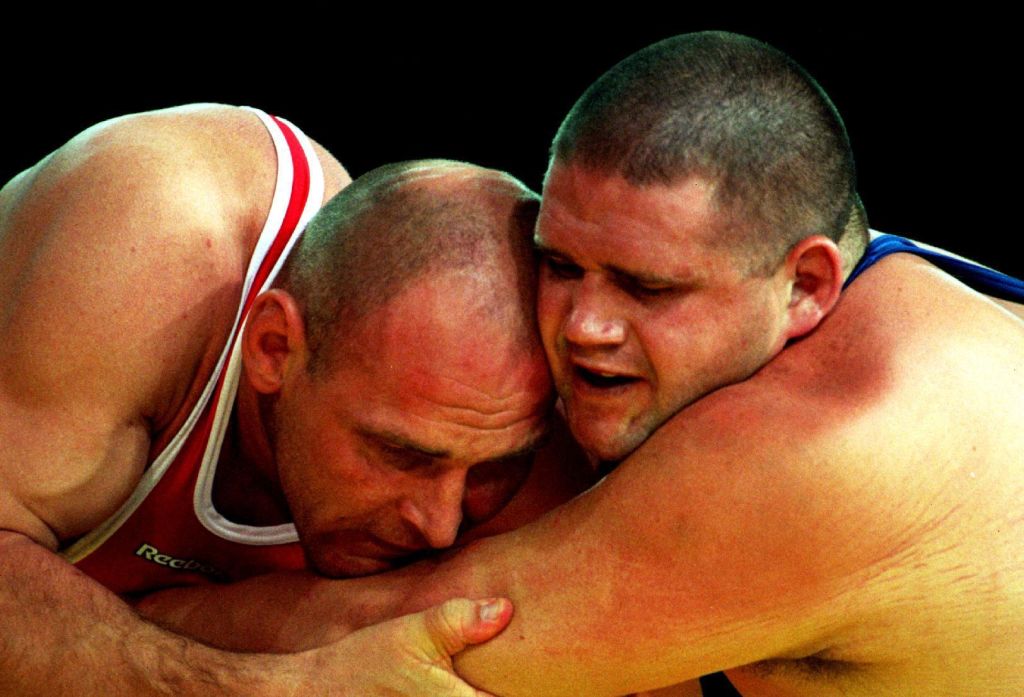 Neal Simpson - EMPICS, Getty Images
Neal Simpson - EMPICS, Getty Images
Cathy Freeman's homeland win, 2000
Australian runner Cathy Freeman won the women's 400-meter race at the 2000 Sydney Olympics, carrying the hopes of a nation on her shoulders. As a proud Indigenous Australian, her victory represented unity and hope for her people. Her win marked a significant moment in Australian sports history.
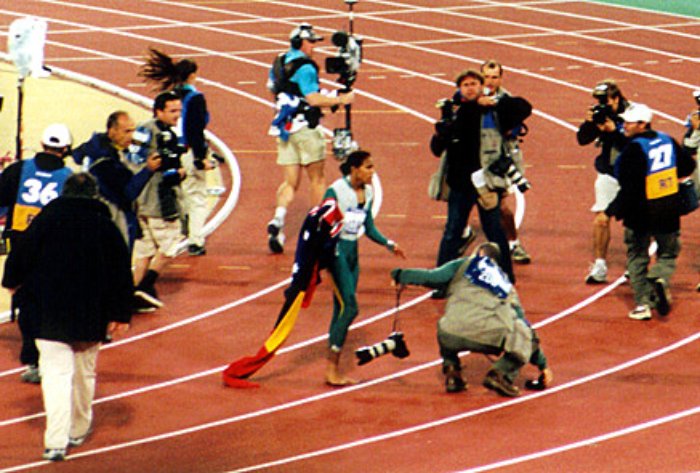 Ian @ ThePaperboy.com, CC BY-SA 2.0, Wikimedia Commons
Ian @ ThePaperboy.com, CC BY-SA 2.0, Wikimedia Commons
"The Eel" and his epic comeback, 2000
At the 2000 Sydney Olympics, French swimmer Eric Moussambani, also known as "The Eel," became a sensation during the men's 100 meters freestyle event. Despite a lack of facilities in his home country of Equatorial Guinea, he qualified for the Olympics under special invitation. Then came an unexpected turn of events—suring the qualifying round, all his competitors got disqualified, so finished the race alone.
Michael Phelps wins 8 gold medals, 2008
Michael Phelps made history during the 2008 Beijing Olympics by winning eight gold medals, surpassing Mark Spitz's previous record. His performances in events like the 100 m butterfly and 200 m freestyle mesmerized audiences and was proof to the world that he was the greatest swimmer of all time.
 Eric Draper, Wikimedia Commons
Eric Draper, Wikimedia Commons
Usain Bolt domination, (2008, 2012, 2016)
Usain Bolt, the Jamaican sprinter, dominated the Olympic Games from 2008 to 2016 with unparalleled success. He won gold in the 100 m, 200 m, and 4x100 m relay, setting world records at the 2008 Beijing Olympics, 2012 London Olympics, and 2016 Rio Olympics. Bolt's influence goes beyond medals, inspiring athletes to always strive for greatness.
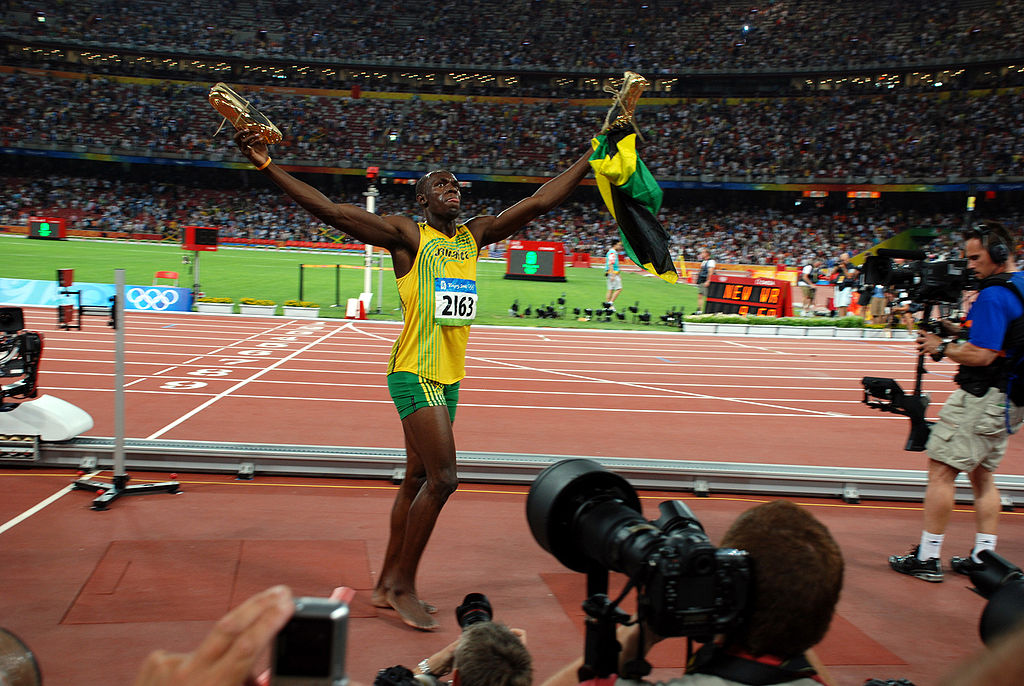 Jmex60, CC BY-SA 3.0, Wikimedia Commons
Jmex60, CC BY-SA 3.0, Wikimedia Commons
Oscar Pistorius makes history, (2012)
During the 2012 Olympics in London, Oscar Pistorius made history as the first double-leg amputee to compete, using carbon-fiber prosthetic blades. Despite not winning medals, his participation in the men's 400 m and 4x400 m relay sparked global interest in disabled athletes' inclusion in traditional sports.
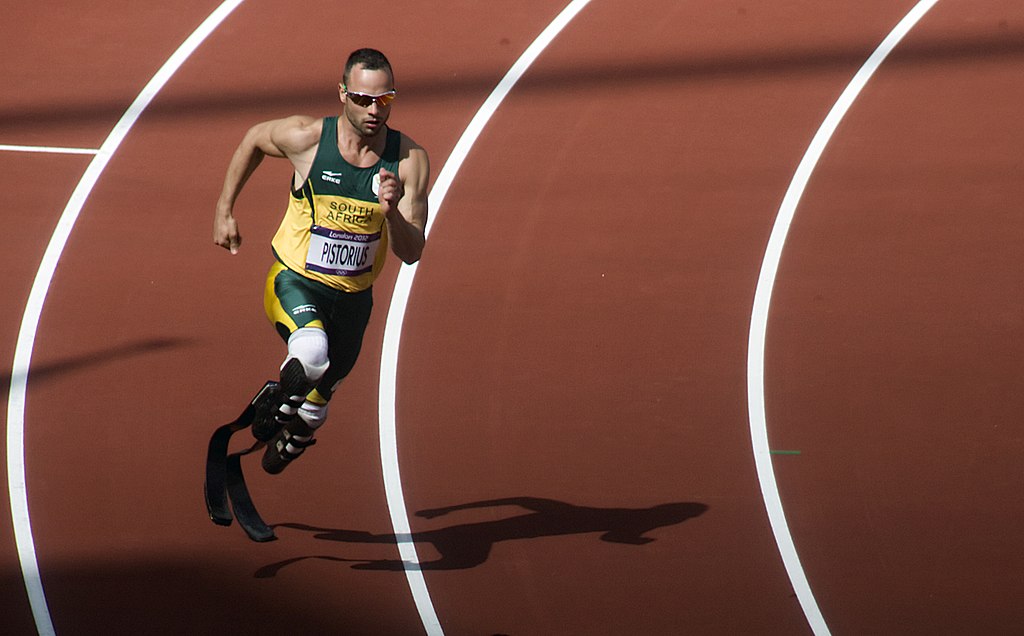 Jim Thurston, CC BY-SA 2.0, Wikimedia Commons
Jim Thurston, CC BY-SA 2.0, Wikimedia Commons
Gabby Douglas strikes gold, (2012)
Gabby Douglas, an American gymnast, won two gold medals at the 2012 London Olympics, leading the U.S. women's team to victory and becoming the first African American woman to win the individual all-around event. Her success inspired many others to follow suit.
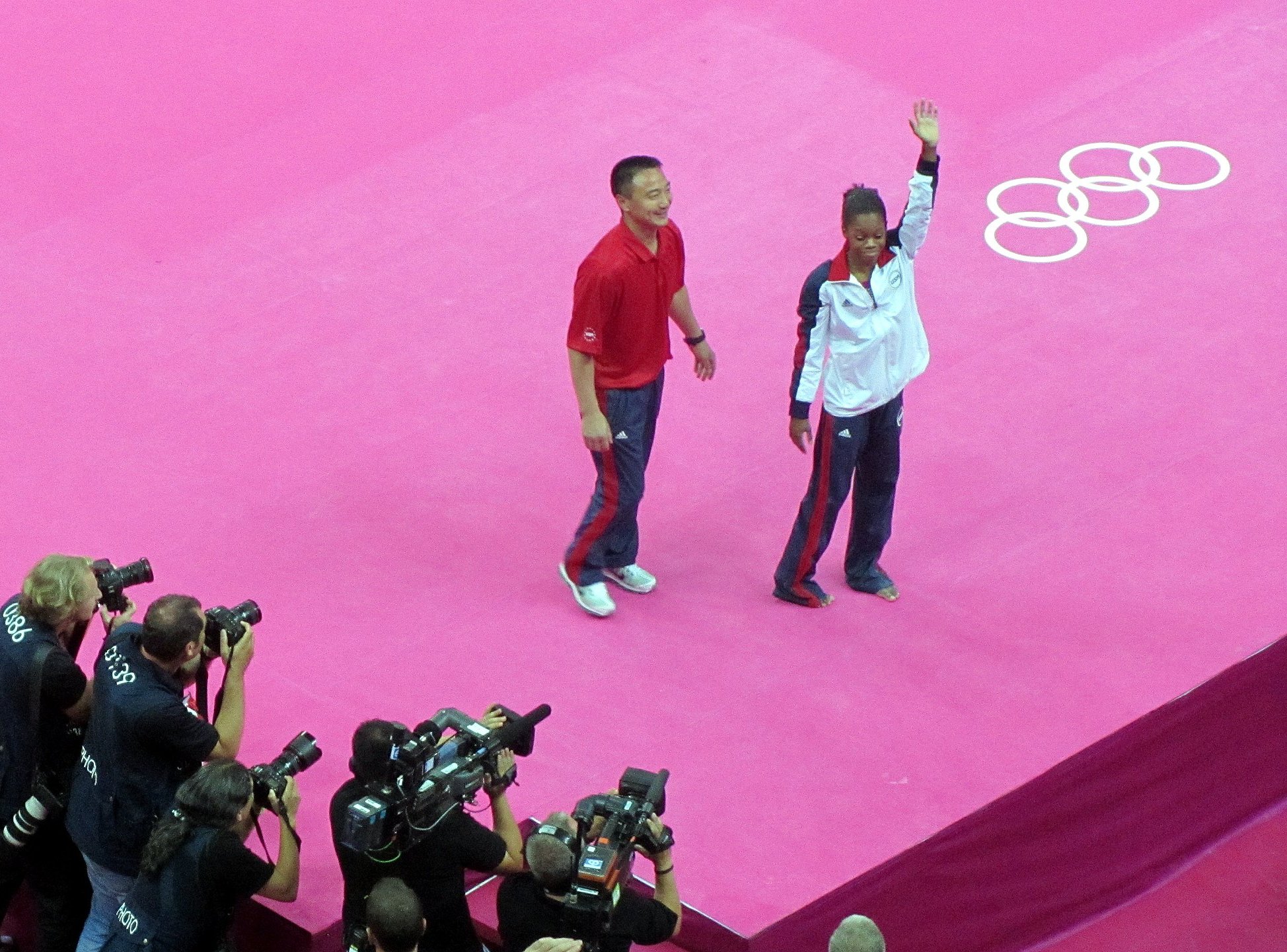 David Jones, CC BY 2.0, Wikimedia Commons
David Jones, CC BY 2.0, Wikimedia Commons
Andy Murray wins on home court, (2012)
During the 2012 London Olympics, British tennis player Andy Murray made history by winning the men's singles gold medal. He defeated Roger Federer at Wimbledon in straight sets, becoming the first British man in over a century to win Olympic gold in singles.
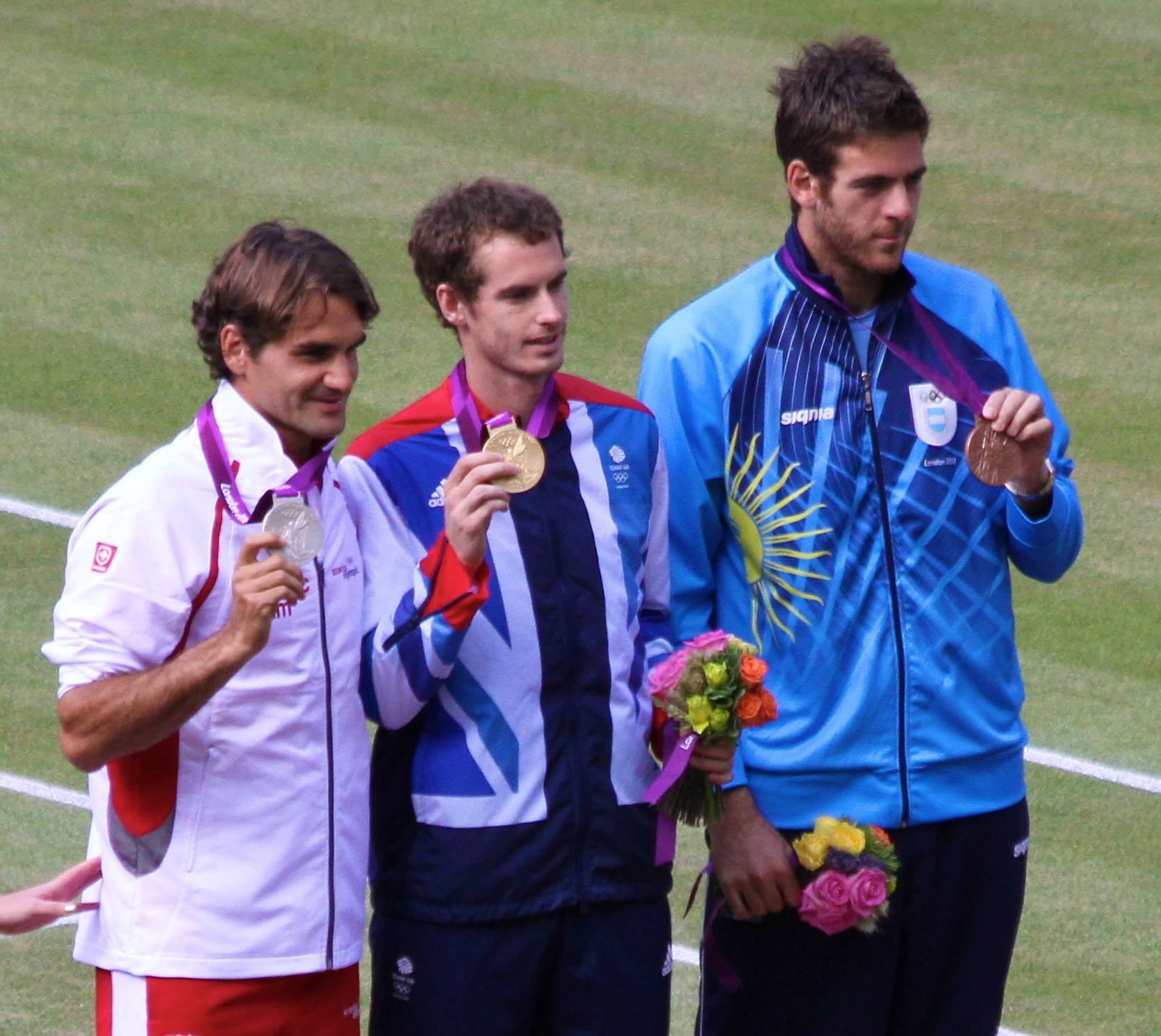 Christopher Johnson, CC BY-SA 2.0, Wikimedia Commons
Christopher Johnson, CC BY-SA 2.0, Wikimedia Commons
The Syrian swimmer, (2016)
Yusra Mardini, a Syrian swimmer, grabbed attention during the 2016 Rio Olympics for her remarkable story and athletic talents. Fleeing Syria, she displayed immense bravery by swimming for hours to save her sinking boat with her sister. Competing for the Refugee Olympic Team, Mardini's participation symbolized hope and resilience.
 ONU Brasil, CC BY 3.0, Wikimedia Commons
ONU Brasil, CC BY 3.0, Wikimedia Commons
Simone Biles takes the top spot, (2016)
At the 2016 Rio Olympics, American gymnast Simone Biles won four gold medals and a bronze, dominating in the individual all-around, vault, and floor exercise. Biles also contributed to the U.S. team's gold win. Her exceptional performances and talent made her an inspiration to young athletes worldwide.
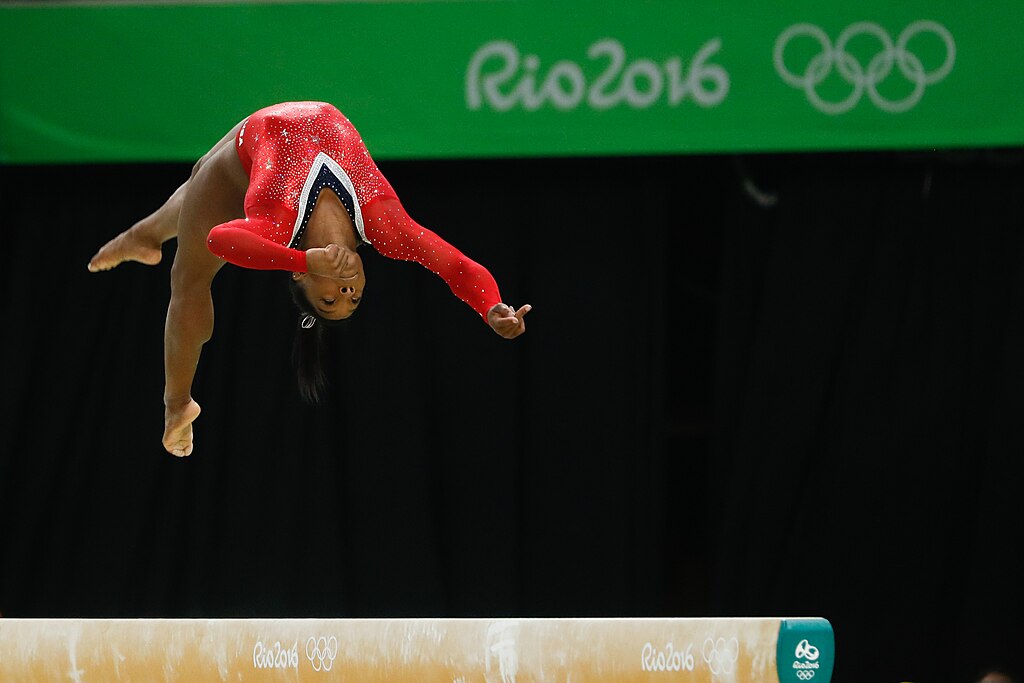 Fernando Frazão, CC BY 2.0, Wikimedia Commons
Fernando Frazão, CC BY 2.0, Wikimedia Commons
North and South Korea unite, (2018)
During the 2018 Winter Olympics opening ceremony in Pyeongchang, South Korea, athletes from North and South Korea walked together with a unified flag, symbolizing peace between the two nations. This demonstration highlighted the Olympics' role in fostering global unity.
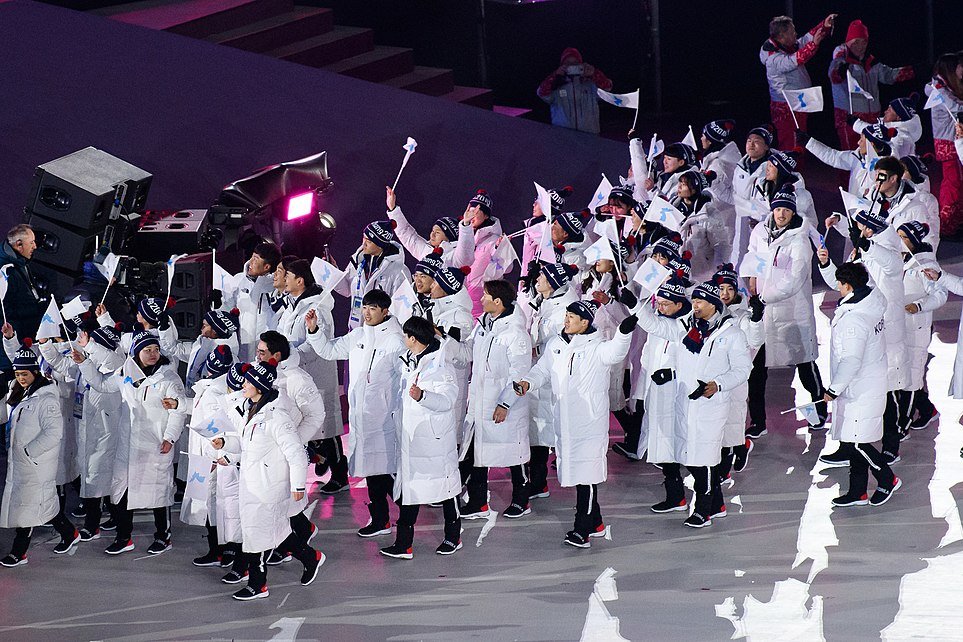 Korea.net, CC BY-SA 2.0, Wikimedia Commons
Korea.net, CC BY-SA 2.0, Wikimedia Commons
Eliud Kipchoge runs for Kenya, (2020)
Kenyan marathoner Eliud Kipchoge cemented his status as a top runner by winning gold in the men's marathon at the 2020 Tokyo Olympics. His impressive finish time of 2:08:38 showcased his endurance and skill.
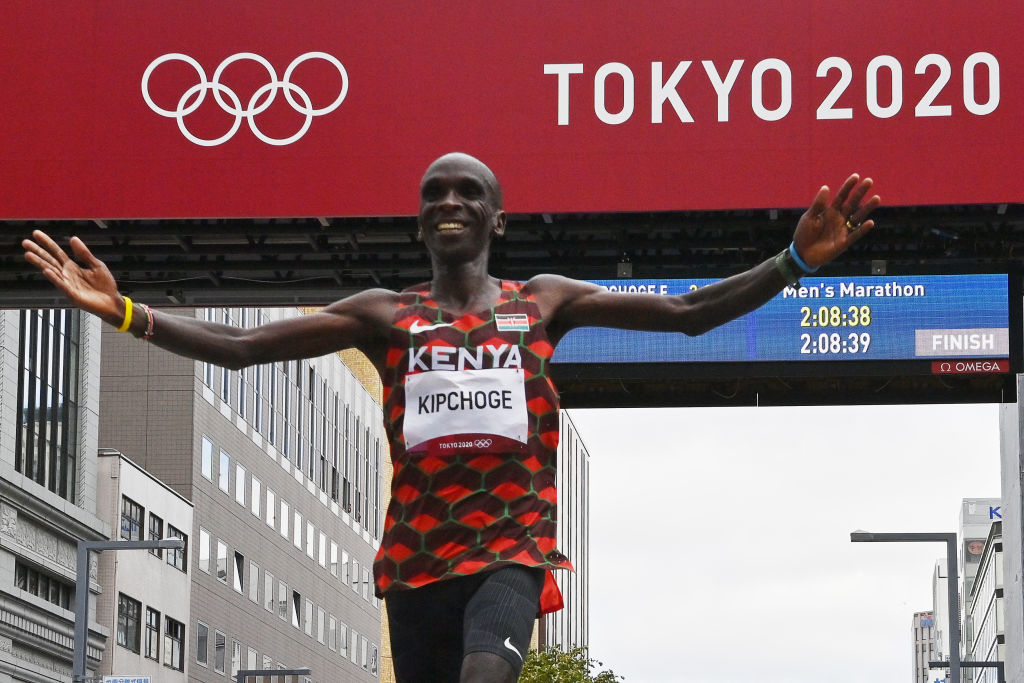 CHARLY TRIBALLEAU, Getty Images
CHARLY TRIBALLEAU, Getty Images
Simone Biles withdraws, (2020)
Simone Biles withdrew from multiple events at the 2020 Tokyo Olympics due to the "twisties," prioritizing her mental well-being. Her decision sparked discussions on athletes' mental health, receiving widespread support. Biles later returned for the balance beam final, winning a bronze medal.
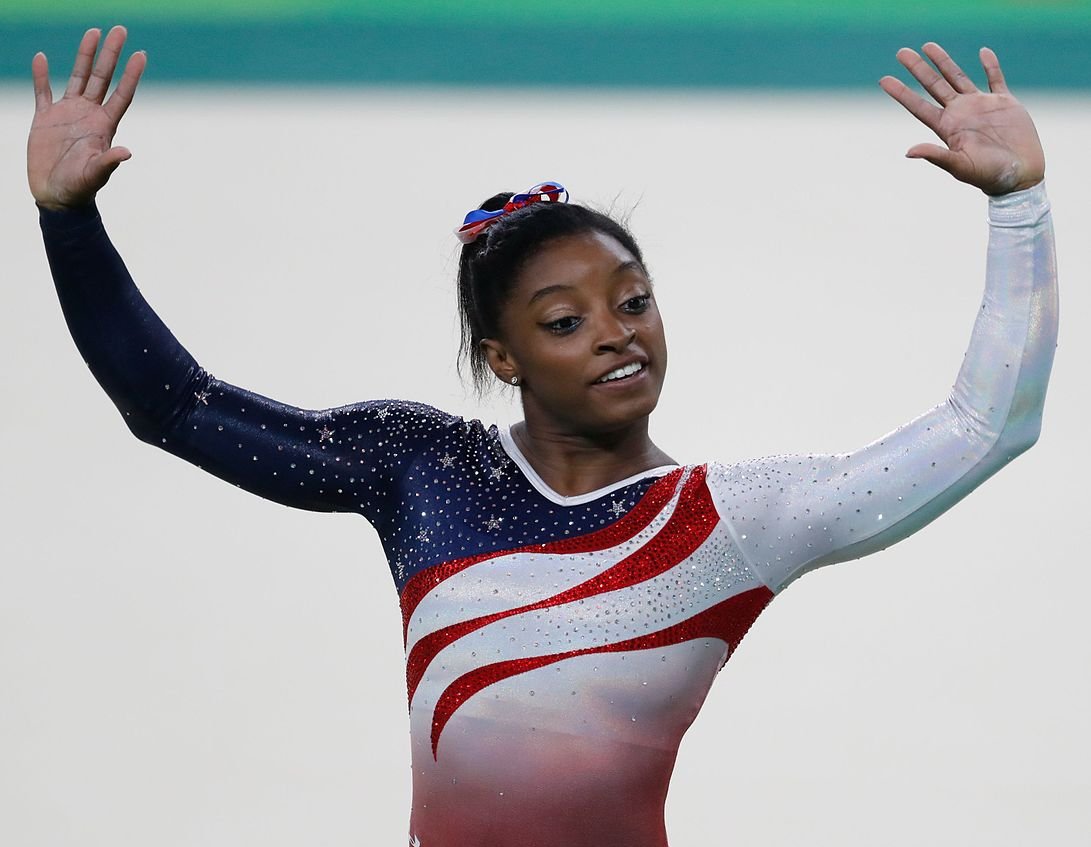 Agência Brasil Fotografias, CC BY 2.0, Wikimedia Commons
Agência Brasil Fotografias, CC BY 2.0, Wikimedia Commons
The COVID-19 pandemic,(2020)
The COVID-19 pandemic led to a one-year delay of the 2020 Tokyo Olympics, which took place in 2021 with strict health protocols. Athletes competed in empty stadiums, showing strength in times of adversity.
 Dick Thomas Johnson, CC BY 2.0, Wikimedia Commons
Dick Thomas Johnson, CC BY 2.0, Wikimedia Commons
The first gender-balanced Olympics, (2020)
The 2020 Tokyo Olympics achieved gender equality by having nearly equal numbers of male and female athletes participate, with women making up around 49% of participants. The International Olympic Committee's efforts to promote gender equality in sports resulted in additional mixed-gender competitions.


